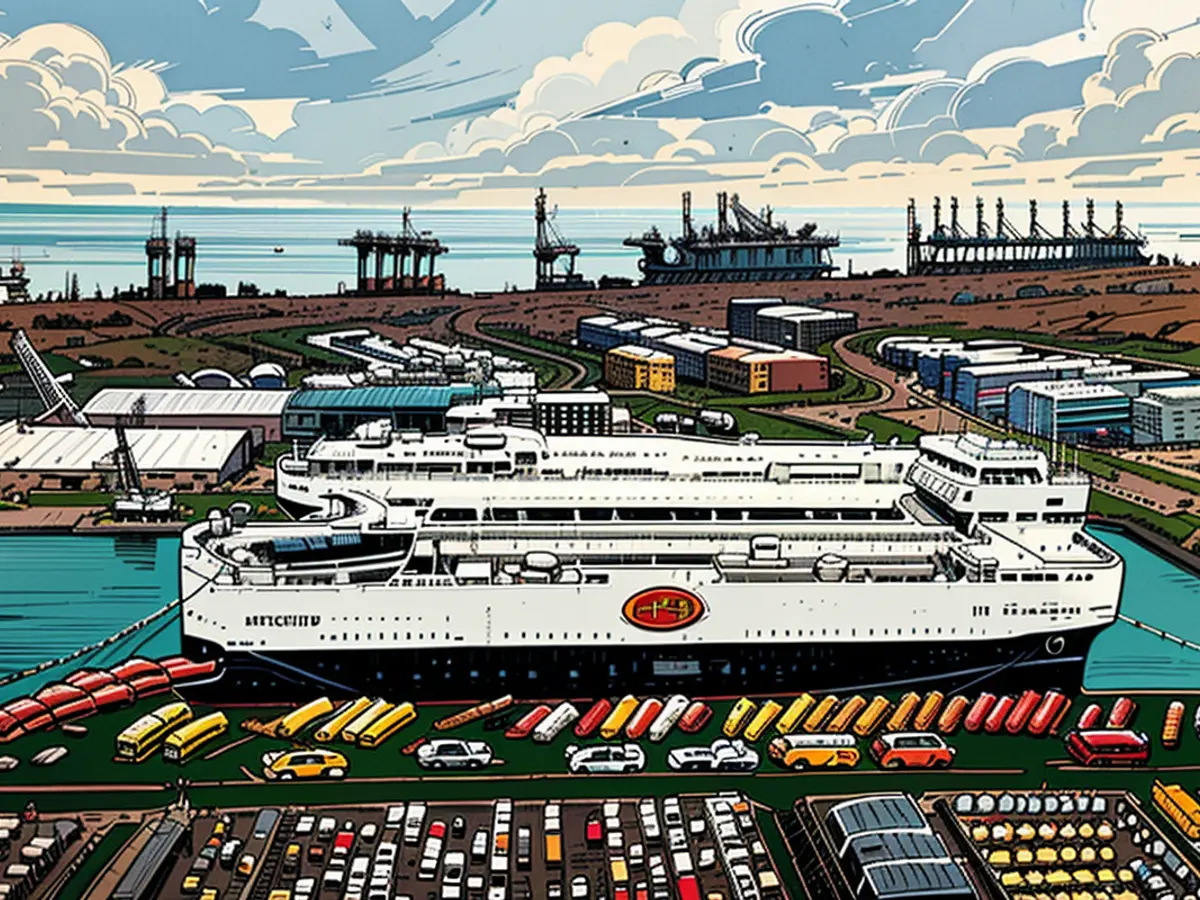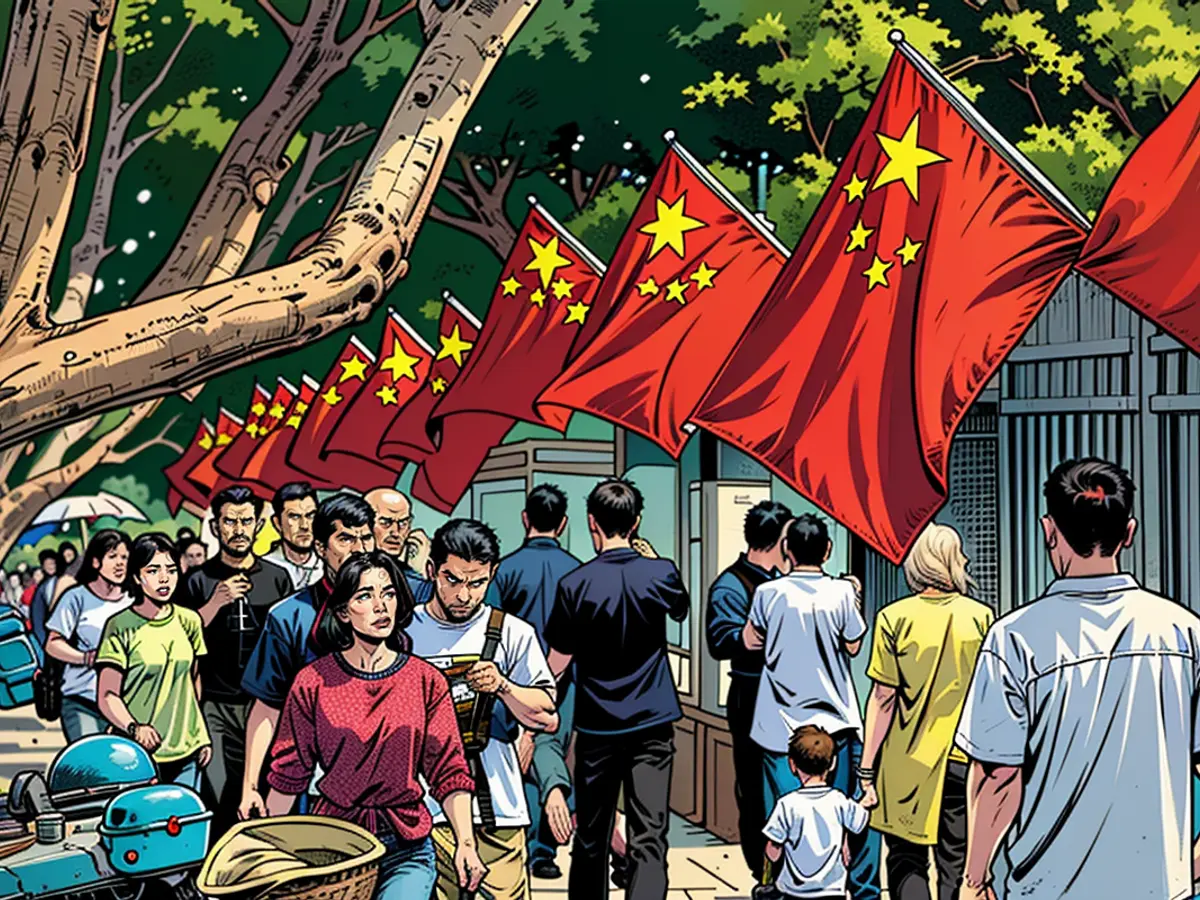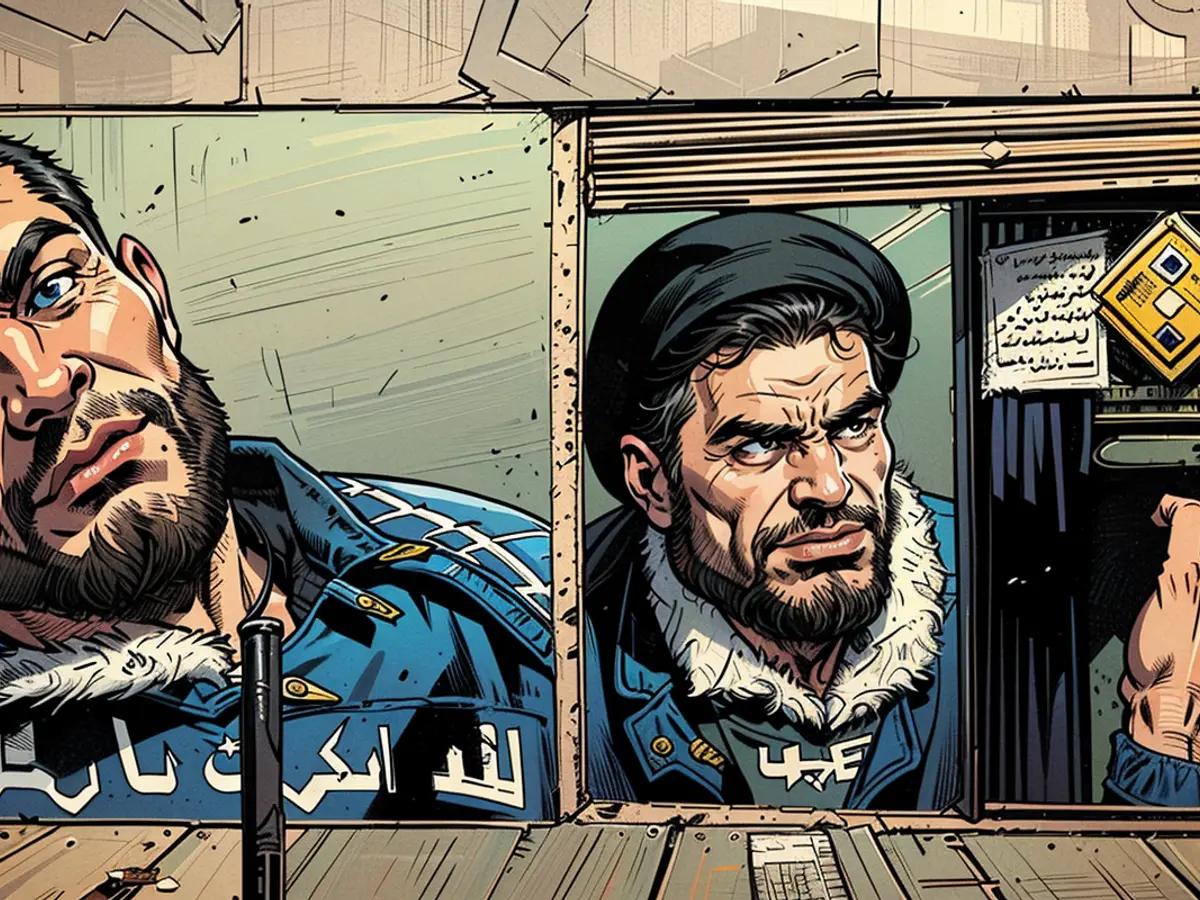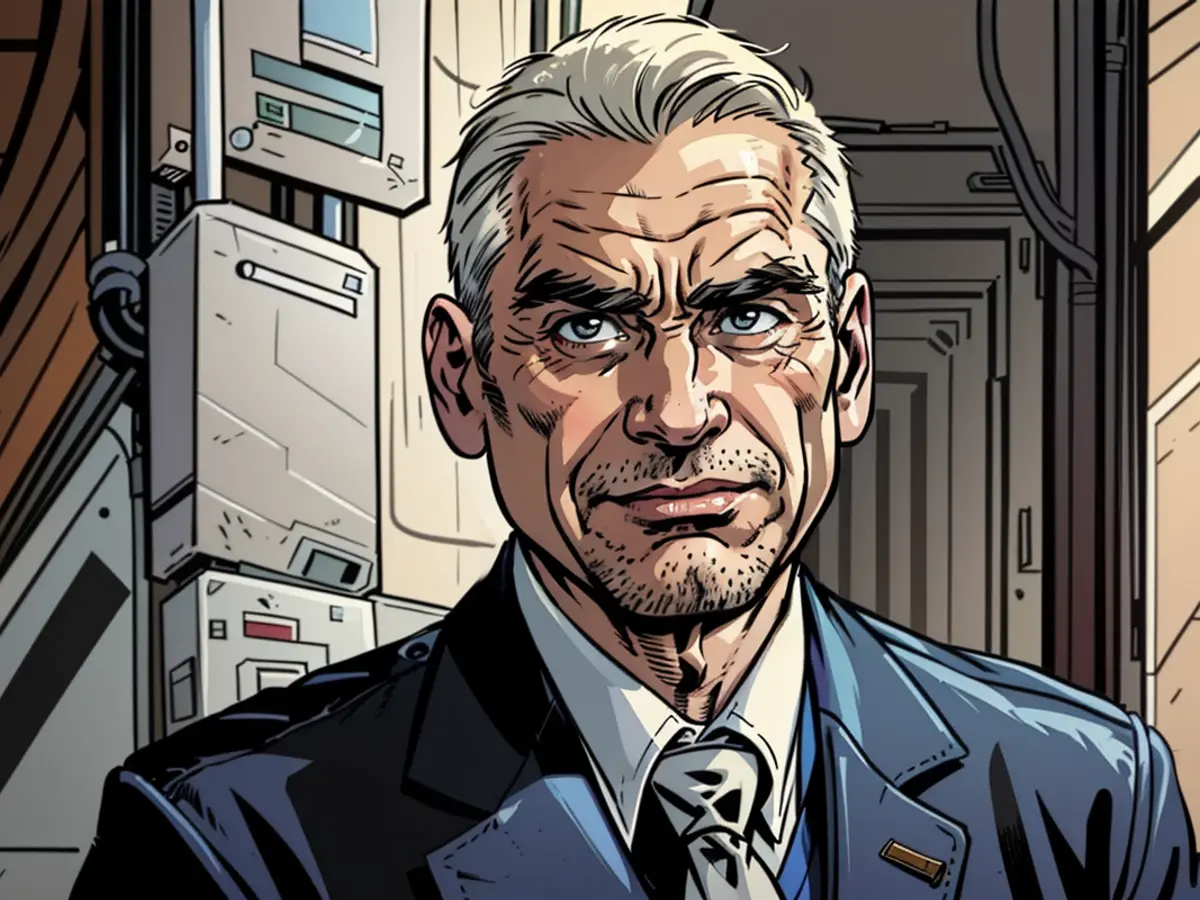Nicholas Kristof emphasizes that journalists should not remain impartial when reporting on Donald Trump's attacks on democracy.
The book is released while the American media is still grappling with how to cover Donald Trump and the anti-democratic movement that he leads. Kristof, who has spent years reporting on oppressive regimes in various parts of the globe, doesn't hold back when discussing the lessons he has learned about autocrats. He states that American media shouldn't be neutral in preserving democracy and shouldn't just observe dispassionately as the nation moves towards authoritarianism.
We had the opportunity to speak with Kristof via email for a Q&A about this and more. The conversation, unedited, is presented below.
His memoir's opening scene takes place in the Congo in 1997. He says he feared for his life during that reporting trip. In the book's conclusion, he discusses how being a foreign correspondent has transformed significantly as a profession. Currently, the New York Times provides journalists with resources such as a Q who supplies special equipment for field trips and security consultants at every stage. How beneficial have these resources been for journalism?
These resources save lives. In the old days, reporters would simply venture into war zones, sometimes getting incredible stories by taking unnecessary risks. I've lost friends due to this recklessness. During the early phase of the Iraq war, I calculated that journalists were dying 10 times more frequently than American troops, because we weren't cautious enough. When I last entered Syria during the civil war, the Times had security consultants accompany me, and they even prevented me from sneaking into Aleppo. While I was initially frustrated, I'm now grateful to The Times for reining me in. My wife is even more grateful.
In the 1980s, you wrote that as a reporter for The NYT, you "had a freedom that today's journalists couldn't even imagine." You noted that "most editors had little idea" about what you were working on. Do you believe current reporters don't have enough independence to find and report critical stories? Do journalists nowadays spend too much time behind their desks?
To be honest, there's too much punditry in journalism today and not enough investigative reporting. While a pundit can write a well-researched article criticizing someone, a true journalist might not get any reactions at all if they go out and report without any preconceived notions. However, it's the latter that adds real value. If I write about Trump, abortion, the Middle East, guns, or other popular issues, some people will cheer me on, and others will scoff - but I won't change any minds. However, where I've managed to make an impact has been by highlighting lesser-known issues that aren't on the top of people's minds. This only happens when journalists leave their offices and go out into the field.
It's not just about global crises. Over 100,000 Americans are dying each year due to overdoses, and I don't think the media have adequately covered this tragedy in working-class America. I also think the media lack diversity in terms of social class, which is affecting its ability to cover this issue effectively.
Over the past few years, the industry has faced enormous challenges. Layoffs have affected numerous major organizations and local newspapers have been shutting down all across the country. Newsrooms are also struggling to find new business models to remain sustainable. You talk about the importance of focusing on solutions. Do you see a potential solution to the problems afflicting the industry?
Although I never would have imagined supporting the idea a decade ago, I'd now be open to government grants to help keep local news organizations operating. The National Endowment for the Arts provides grants for local artists, and I believe it's just as essential for a town to have a newspaper as it is a theater.
For larger news organizations, philanthropy might be an option. But I'm very worried about the potential impact of A.I. on the news industry's economic model. There's a looming threat that we won't be getting news from The New York Times, CNN, or even TikTok; instead, we'll be getting it from an A.I. assistant that steals content from journalists and serves up a personalized version that merely reinforces our biases.
As a writer who shares their experiences as a foreign correspondent, you discuss the dangers of potentially harming sources due to carelessness. How can journalists, particularly those reporting in authoritarian countries, avoid making such mistakes and live without the constant fear of inflicting suffering rather than alleviating it?
Many journalists seem to forget their duty of care when it comes to protecting sources. While detailed descriptions are important in areas like Washington, D.C., it's crucial to consider the risks when dealing with people who might not fully understand the dangers. In countries like China, there are numerous state security agents following you, using a relay system to tail you and surveillance cameras on the streets – it's not a game. Any mistake you make could lead to devastating consequences for someone else.
In one instance, you share a story from your book, "Chasing Hope," about a Chinese man with information about missiles you were desperately trying to obtain. You met him secretly several times, attempting to extract the information from him. Eventually, you advised him to never contact a foreigner again, knowing that there was a risk of arrest and execution if he continued to cooperate. Although you missed out on a great story, you're content with the decision to protect him.
Later in the text, you reflect on your unsuccessful attempt to become governor of Oregon due to a residency requirement. In your book, you express gratitude for realizing the iconic phrase, "The grass is always greener on the other side of the fence." Do you believe journalists can achieve more positive change through their work as compared to a political career?
William Safire once remarked, "Why take a step down?" when asked about leaving his Times column for a position as Secretary of State. While there are undoubtedly talented journalists and politicians, your personal experience in politics has been less-than-stellar. Consequently, you've continued to use your journalistic skills.
You also touch upon the growing attempts by Donald Trump and his allies to "undermine democracy" in the U.S. You paint a chilling picture of what a "populist authoritarianism" might entail for the U.S., mentioning the potential weaponization of the federal government to punish or intimidate news organizations, possibly even assassinations during heightened polarization. As someone who has spent a significant part of their life reporting across the world, do you think the American people truly comprehend the severity of the situation you describe? Or, do you believe that many people mistakenly assume these horrors could never occur in the U.S.?
Having witnessed the disintegration of countries and the deterioration of democracies, you believe that many Americans underestimate the risks. The perception of gradual progress often clouds the reality of sudden changes.
In your book, you state that journalists must not merely act as "dispassionate stenographers" but, instead, must "report the truth, wherever it lies and whomever this offends." You recognize the importance of weighting the truth over impartiality while disseminating information during politically volatile times. Do you think your colleagues in the media share your conviction about this responsibility when it comes to reporting on anti-democratic candidates like Trump?
Certainly, some journalists do. However, just like anything else in life, there's a fair dose of variation. The objective is to be both truthful and fair, often by presenting all sides of an argument. Nevertheless, this approach doesn't always serve the greater good. During the McCarthy era, it became clear that merely quoting McCarthy's accusations and the defenses of the accused wasn't enough to accurately portray the situation. It took Edward R. Murrow to step up and clearly condemn the deceitful nature of McCarthy's accusations. Similarly, journalists had to bear witness to the brutality of Jim Crow segregation in the South during the civil rights movement. In 2016, the media underestimated Trump by treating him as a regular candidate. Although they attempted to be fair, they failed to communicate the dire consequences of supporting a candidate who perpetuated lies. To effectively represent the truth, striking the right balance is a difficult and challenging feat.
Finally, I'd like to seek your opinion on Joe Kahn, the NYT's top editor, who recently faced backlash for stating: "To say that the threats of democracy are so great that the media is going to abandon its central role as a source of impartial information to help people vote — that's essentially saying that the news media should become a propaganda arm for a single candidate, because we prefer that candidate's agenda." What are your thoughts on Kahn's comments?
I feel people are giving too much significance to a short statement that doesn't capture the intricacy of managing a newsroom in today's era. I've known Joe Kahn for 35 years, respect him, and have faith in his devotion to accountability journalism, both in China and the US. Will we err occasionally? It's natural. But The Times is an incredible organization that deeply values its obligation to this nation, its democracy, and its future.
Can we conclude on a more upbeat note, amidst all this negativity?
Despite the low quality of journalism prevalent these days, the exceptional work in the field is nothing short of mind-blowing. I'm taken aback by the extraordinary talent in multimedia, video, and audio journalism I witness, by the perseverance of colleagues who strive for uncovering the truth, and by the courage of reporters risking their lives in Gaza, Russia, and other dangerous locations. The way photojournalists rush towards violence - it's mesmerizing! I'm astonished by the quality of fresh journalists joining the field, even though they face uncertainty in terms of financial security. And as I mention in "Chasing Hope", journalism itself is a sign of hope. We perform this action because we think it counts. It has importance. I believe that journalism - together with law and the civil service - limited the Trump presidency and serves as a force for civility and democracy.
When I was on Tiananmen Square during the fateful nights of June 3-4, 1989, when Chinese soldiers were repressing the pro-democracy movement, a rickshaw driver picked up the body of a young man who had been shot. He brought the lifeless body near me so I could see it and report about it. "Inform the world", the driver shouted, tears cascading down his face. "Inform the world". He felt that sharing the truth was essential, that truth will ultimately win, and that what we do carries weight. At some random time in the future, truth will emerge victorious. He believed it, and I believe it, which is why I assert that journalism is an act of hope.
Read also:
- Lack of snow also opens up new opportunities for winter tourism
- Abrupt end to e-car subsidies
- The chemical industry has little confidence
- Intersport boss hopes for sales boom through sporting events
The American media must recognize its role in preserving democracy and not remain neutral in the face of Donald Trump's attacks on democracy. This stance, advocated by journalist Nicholas Kristof, is crucial in combating the anti-democratic movement led by Trump.
Moreover, businesses in the media industry should invest in resources and training to protect journalists, especially those reporting from dangerous regions. As Kristof mentioned, the provision of special equipment and security consultants has saved lives and enabled journalists to conduct their work more safely.
Source: edition.cnn.com








